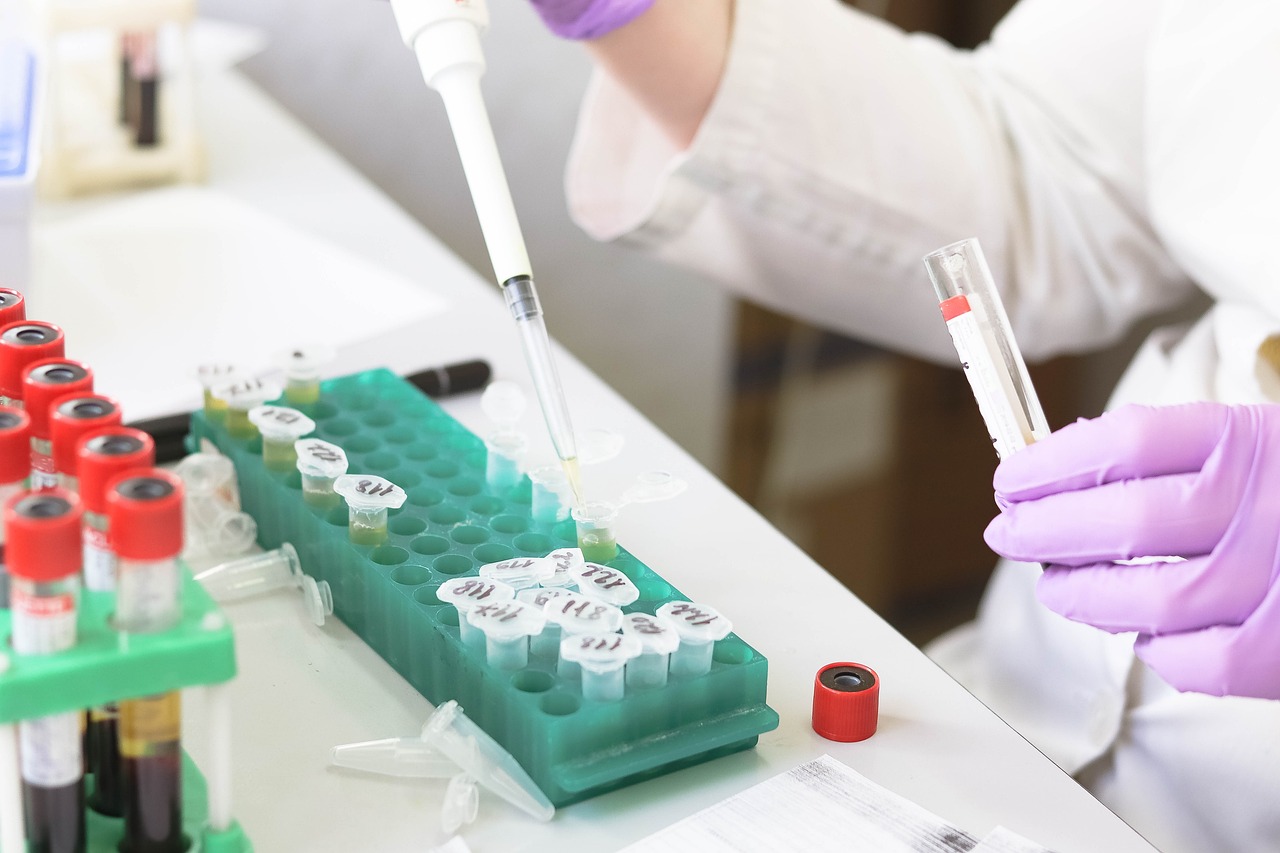Medical breakthroughs utilising artificial intelligence, deep brain stimulation and genomics could be just around the corner.
Twelve innovative projects will receive funding that will fast-track them from research to reality – resulting in better treatment for patients in Victoria and across the world.
Now in its fourth year, the $3 million fund supports early stage research including discovery research, clinical research and health practice.
Since 2017, a total of 69 health and medical research projects have benefitted from $11.9 million in Victorian Government funding with matched contributions of $18 million by the applicants.
The fund is part of the Victorian Government’s ongoing commitment to supporting Victoria’s world-leading medical research sector.
The current Victorian Budget is delivering $116.5 million for our top researchers, clinicians, and scientists to do what they do best.
This includes $60 million for Australia’s first research and education centre for biomedical engineering – the Aikenhead Centre for Medical Discovery at St Vincent’s Hospital – and $18 million to establish the Australian Drug Discovery Centre at the Walter and Eliza Hall Institute for Medical Research.
Victorian Medical Research Acceleration Fund recipients: Round 4
Tier 1
1. Novel approach to management of viral infections by targeting host cell processes rather than viral replication – RMIT University
This research proposes a new approach to antiviral drug discovery. Whilst there are significant global medical research efforts to develop a vaccine for COVID-19, it is still many months away.
This proposal uses a novel approach to management of viral infections by targeting cell processes, rather than viral replication, which if successful might allow repurposing of drugs developed for other indications as curative COVID-19 treatments.
2. Safer care for critically ill newborns: a new medical device to assist with placement and monitoring of neonatal central venous catheters – Royal Women’s Hospital
Nearly 10,000 central venous catheters are inserted into veins of critically ill newborns in Australian ICU settings every year for essential intravascular access and delivery of life-saving therapies. Correct catheter tip positioning is vital to avoid serious complications such as tissue injury.
This project will deliver the world’s first electrocardiogram tip location system designed for neonatal patients, with the potential to benefit the Victorian healthcare system by reducing costs, complications, and wastage of resources due to unnecessary repeat procedures.
3. Using oxytocin to treat body dysmorphic disorder – Swinburne University of Technology
Body dysmorphic disorder (BDD) is characterised by an excessive concern that part of one’s face or body is ugly and can result in significant social dysfunction. Current treatments are limited, and novel intervention options are in demand. In world-leading experiments in the laboratory a single-dose of oxytocin, a neuropeptide produced in the brain, improved activity in patients with BDD compared with healthy controls.
This study aims to determine if a 6-week course of low or high dose oxytocin delivered can improve symptoms and social functioning in individuals suffering from the disorder.
4. Development of a genomic diagnostic test for patients with immune dysfunction – Melbourne Health
Researchers at Melbourne Health aim to develop a genomic diagnostic test for patients with immune dysfunction. In Victoria, there are expected to be approximately 12,718 patients with some form of immunodeficiency.
Accurate diagnosis is essential to enable access to effective therapies, yet a substantial issue for patients is delay in making an accurate diagnosis. Melbourne Health aim to develop a diagnostic test that will significantly shorten the time for diagnosis of patients, resulting in improved quality of life and significant savings to the healthcare system.
5. Perioperative process optimization using an intelligent decision support tool – Atidia
Atidia is developing software to optimise perioperative surgery outcomes. Researchers will utilize machine learning and artificial intelligence to identify procedures and practices to enhance doctors’ decision making and standardise practice. If successful, the new practices will reduce post-operative morbidity and mortality and thus the duration of hospitalisation and associated costs.
Tier 2
6. Developing a low-cost, regenerative medicine for extremely premature babies at high risk of developing severe and chronic respiratory disease – Hudson Institute
Bronchopulmonary dysplasia is an incurable chronic lung disease that commonly affects tiny babies (born 28 – 32 weeks premature). Researchers at the Hudson Institute will develop a low-cost, regenerative medicine for extremely premature babies at high risk of developing severe and chronic respiratory disease.
This is a first-in-class therapeutic for an extremely vulnerable patient population. The research will have broader applications beyond premature babies, addressing other urgent unmet medical needs. This could include COVID-19 which has significant overlap with Bronchopulmonary dysplasia, including periods of patients on ventilatory support and multi-organ failure due to the respiratory disease.
7. Development of a superior antibody-based therapy for CD30+ lymphomas – Avipep Pty Ltd
Lymphoma occurs when abnormal cells in the body’s lymphatic system grow in an uncontrolled way. CD30+ lymphomas, a type of cancer, lead to thousands of deaths in Australia annually, and 100,000 globally. The rapid progression of the disease leads to mortality within 5 years of diagnosis.
In partnership with Peter MacCallum and the Epworth Hospital Cancer Centres and CSIRO, researchers at Avipep Pty Ltd, will focus on a therapeutic solution for relapsed lymphoma patients.
8. Translating a recently discovered brain signal into optimised deep brain stimulation therapy for people with Parkinson’s disease –The Bionics Institute of Australia
Parkinson’s disease is a disabling condition affecting over 75,000 Australians that causes slowness of movement, stiffness, and tremor. Deep brain stimulation is used when medication can no longer control symptoms and involves surgically implanting electrodes into specific parts of the brain while the patient is awake.
The Bionics Institute seeks to accelerate the development of a novel, deep brain stimulation therapy to improve the management of Parkinson’s disease. Over 18 months, researchers aim to accelerate development of our device and perform clinical studies in 60 participants receiving deep brain stimulation surgery for Parkinson’s disease.
9. A novel composite biomaterial for corneal transplantation to restore vision in patients with corneal endothelial disease – University of Melbourne
Researchers at the University of Melbourne aim to restore vision to patients suffering eye disease. Corneal endothelial disease is a common cause of blindness, affecting over 3.2 million globally, with this number expected to rise in ageing populations.
A collaboration between University of Melbourne, US-based company Eversight, and the Centre for Eye Research Australia, will test the suitability of a novel biomaterial for corneal transplantation.
10. Remote expert nurse consultation for pressure injury prevention and management in residential aged care – University of Melbourne
Pressure injuries, also known as bed sores, affect up to 28 per cent of aged care residents. Using an e-health approach, researchers at the University of Melbourne aim to assess if a remote team of expert nurses skilled in wound prevention and care, can help protect aged care residents.
If successful, the program could be rolled out across Victoria and Australia and possibly overseas. Major benefits are likely to be improved health outcomes for Victorian patients and savings to Victoria by way of reduced costs of delivering the healthcare system.
11. The effect of hearing aid use on cognitive function in older adults with hearing loss – University of Melbourne
There are over 459,000 people living with dementia in Australia. Hearing loss is also common in older adults, with around 70 per cent of people aged over 70 affected. Researchers will undertake a longitudinal study to determine whether treatment of hearing loss, using a hearing aid, decreases the risk of cognitive decline and dementia.
Expected health outcomes are a proven, cost-effective and simple treatment for delaying cognitive decline, which could improve quality of life of people suffering from dementia.
12. Innovative Inhaled Oxytocin Product to address the leading cause of global maternal mortality, postpartum haemorrhage – Monash University
Postnatal haemorrhage is the leading cause of maternal mortality. A phase 1 clinical study of a novel inhaled formulation of oxytocin, will be undertaken to assess if it may reduce mortality from post-partum haemorrhage in low and middle-income countries.







